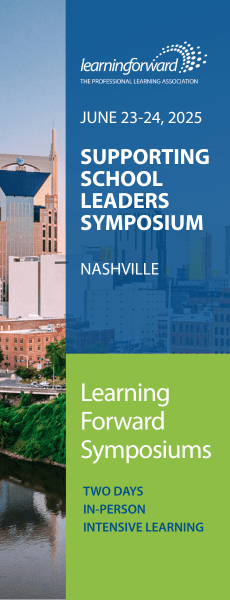Collaborative culture
Balanced Conversations Promote Shared Ownership
By Robert J. Garmston
August 2007
Read the remaining content with membership access. Join or log in below to continue.
Sed ut perspiciatis unde omnis iste natus error sit voluptatem accusantium doloremque laudantium, totam rem aperiam, eaque ipsa quae ab illo inventore veritatis et quasi architecto beatae vitae dicta sunt explicabo. Nemo enim ipsam voluptatem quia voluptas sit aspernatur aut odit aut fugit, sed quia consequuntur magni dolores eos qui ratione voluptatem sequi nesciunt. Neque porro quisquam est, qui dolorem ipsum quia dolor sit amet, consectetur, adipisci velit, sed quia non numquam eius modi tempora incidunt ut labore et dolore magnam aliquam quaerat voluptatem.
In each issue of JSD, Robert J. Garmston writes about how to create collaborative work environments that result in improved student learning. His columns can be found at www.nsdc.org.
References
Berliner, D. (1994). Expertise: The wonder of exemplary performances. In C.C. Block, J. Mangieri, & H. Barnes (Eds.), Creating powerful thinking in teachers and students. Ft. Worth, TX: Harcourt Brace College.
Garmston, R. & Wellman, B. (2002). The adaptive school: Developing and facilitating collaborative groups syllabus. Norwood, MA: Christopher-Gordon.

Robert J. Garmston (fabobg@gmail.com) is an emeritus professor of education administration at California State University, Sacramento, and co-developer of Cognitive Coaching and Adaptive Schools.
Recent Issues
LEARNING DESIGNS
February 2025
How we learn influences what we learn. This issue shares essential...
BUILDING BRIDGES
December 2024
Students benefit when educators bridge the continuum of professional...
CURRICULUM-BASED PROFESSIONAL LEARNING
October 2024
High-quality curriculum requires skilled educators to put it into...
LEARNING TO PIVOT
August 2024
Sometimes new information and situations call for major change. This issue...









